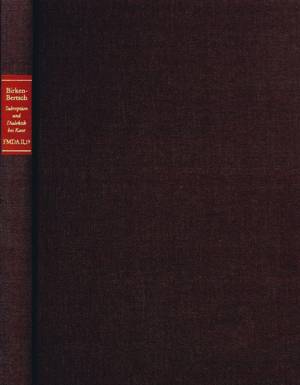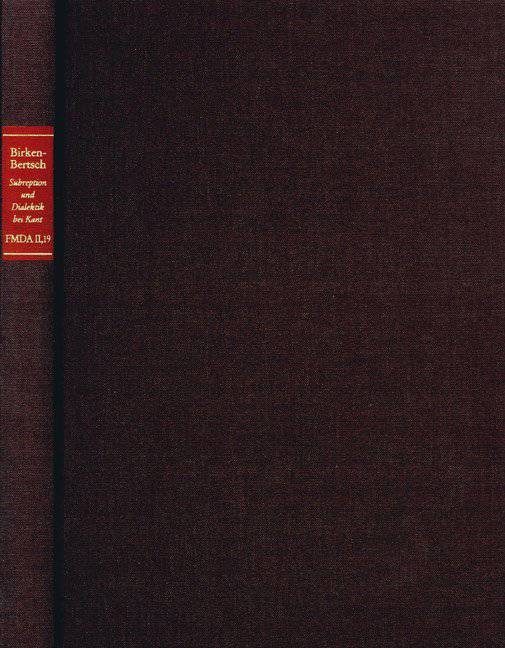
- Retrait gratuit dans votre magasin Club
- 7.000.000 titres dans notre catalogue
- Payer en toute sécurité
- Toujours un magasin près de chez vous
- Retrait gratuit dans votre magasin Club
- 7.000.0000 titres dans notre catalogue
- Payer en toute sécurité
- Toujours un magasin près de chez vous
Subreption Und Dialektik Bei Kant
Der Begriff Des Fehlers Der Erschleichung in Der Philosophie Des 18. Jahrhunderts
Hanno Birken-Bertsch
76,95 €
+ 153 points
Description
In der Philosophie wird der Begriff der Subreption (Erschleichungsfehler) seit Jungius und Leibniz verwandt, um methodische Fehler in philosophischen Argumentationen zu kritisieren. In der ersten Hälfte des 18. Jh. wendet Wolff den Begriff auf die Frage nach der empirischen Absicherung von Aussagen an. Höhepunkt dieser Entwicklung sind Kants Dissertation von 1770 und seine Kritik der reinen Vernunft, in der Kant die Subreptionskritik mit einer Theorie der dialektischen Vernunft überformt. - Dieser Band legt zum ersten Mal eine Untersuchung des Subreptionsbegriffs vor, stellt damit zum einen die Geschichte des Begriffs der Subreption bis hin zur Philosophie Kants dar und untersucht zum anderen Kants These von einer Dialektik der Vernunft auf ihr Verhältnis zur Subreptionslehre hin. So wird die hohe Bedeutung des Begriffs für die Entstehung von Kants Philosophie aufgewiesen.
Spécifications
Parties prenantes
- Auteur(s) :
- Editeur:
Contenu
- Nombre de pages :
- 208
- Langue:
- Allemand
- Collection :
- Tome:
- n° 19
Caractéristiques
- EAN:
- 9783772823763
- Date de parution :
- 01-09-06
- Format:
- Livre relié
- Format numérique:
- Genaaid
- Dimensions :
- 171 mm x 245 mm
- Poids :
- 520 g

Les avis
Nous publions uniquement les avis qui respectent les conditions requises. Consultez nos conditions pour les avis.






